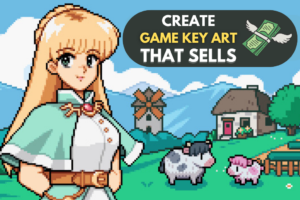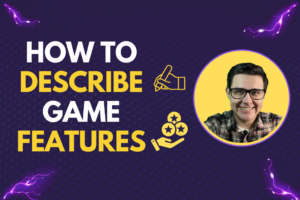So, you’re planning to attend your first game expo, huh? Exciting times ahead! Honestly, it can also be overwhelming. From planning to networking, there’s a lot to consider. Don’t worry, though. I’ve got your back with this guide to help you navigate your first gaming event like a pro. Let’s dive in!
Game conferences/expos are like the meet-up for everyone passionate about gaming. Whether you’re an indie dev or a big studio, these events can be game-changers (pun intended) if you approach them right. But before packing your bags, let’s answer important question: why do we even go to game expos?
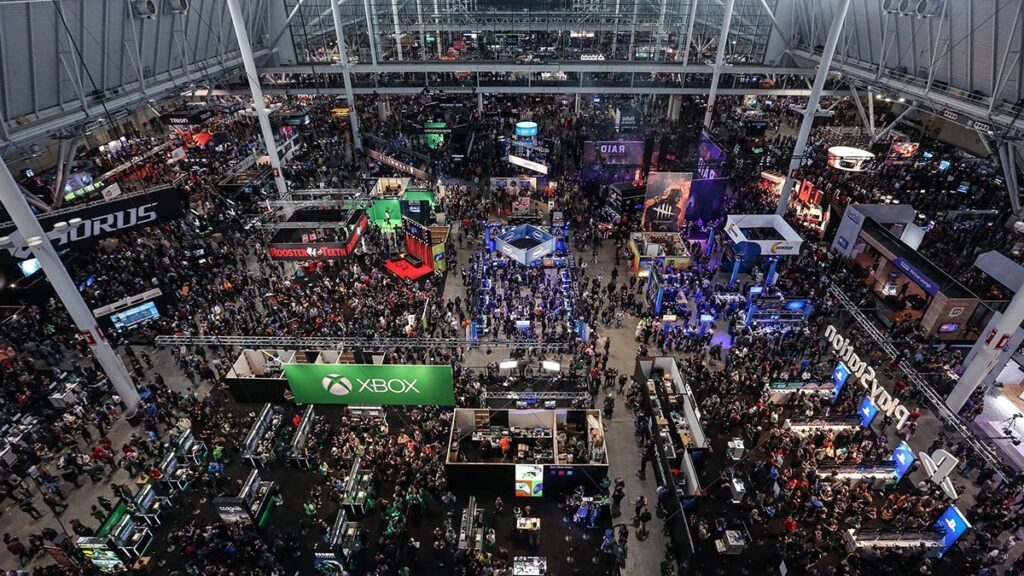
Why Attend Game Expos?
For indie developers, game expos offer a valuable platform to showcase their projects, gather player feedback, and build meaningful connections. These events aren’t just about displaying a game; they’re opportunities to learn, network, and increase the visibility of your projects.
Expos also attract press and influencers, whose coverage can significantly boost a game’s exposure. Networking is another key benefit, whether it’s meeting potential collaborators, publishers, or players who might become strong advocates for your game.
Setting Your Goals for the Expo
It’s important to set clear goals before attending. Are you aiming for player feedback, press coverage, or brand awareness? Short-term sales at expos, particularly for indie developers, rarely justify the effort.
For example, when a small, unknown indie team promotes their game at a regional expo by handing out hundreds of flyers with store links, the immediate results are often minimal. However, if their primary goal is press coverage, they might connect with a local gaming blog that publishes an article about their game. That will drive significant traffic and sales later. This highlights the value of focusing on long-term outcomes rather than expecting immediate returns.
Understanding B2B and B2C Game Expos
Game conferences come in all shapes and sizes, but they generally fall into two major categories: B2B (Business to Business) and B2C (Business to Consumer).
B2B (Business to Business) expos are all about professional networking, industry insights, and business growth. These events are designed for developers, publishers, and service providers. There you can meet publishers, investors, and other professionals, attend panels on market trends and strategies, and pitch projects to secure funding or partnerships. For anyone looking to grow professionally or for business opportunities, B2B conferences are must-have.
Events like the Game Developers Conference (GDC), DICE, the business area at Gamescom, as well as smaller events like DevGAMM, Game Connection, and G-Star, are popular examples.
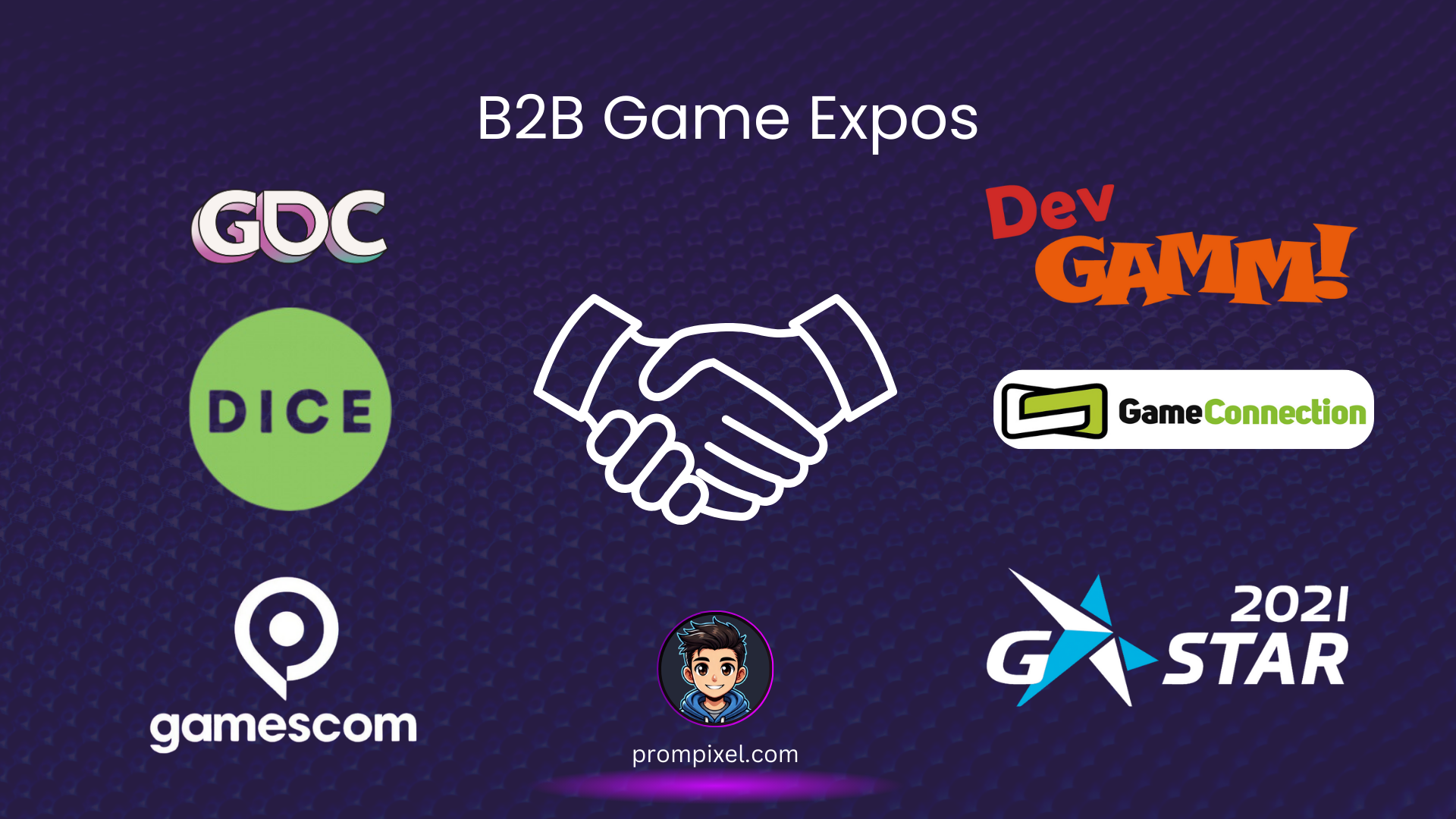
B2C (Business to Consumer) expos are all about connecting directly with gamers and generating excitement for your game. These events focus on showcasing games to players, creating a more casual and fun atmosphere compared to B2B. While they’re not ideal for forming serious industry partnerships, they excel at building hype, gathering player feedback, and growing your community.
Events like EGX, PAX, and the consumer area at Gamescom are major examples, drawing huge crowds and industry attention. Smaller events include MAGFest, DreamHack, IndieCade, etc.
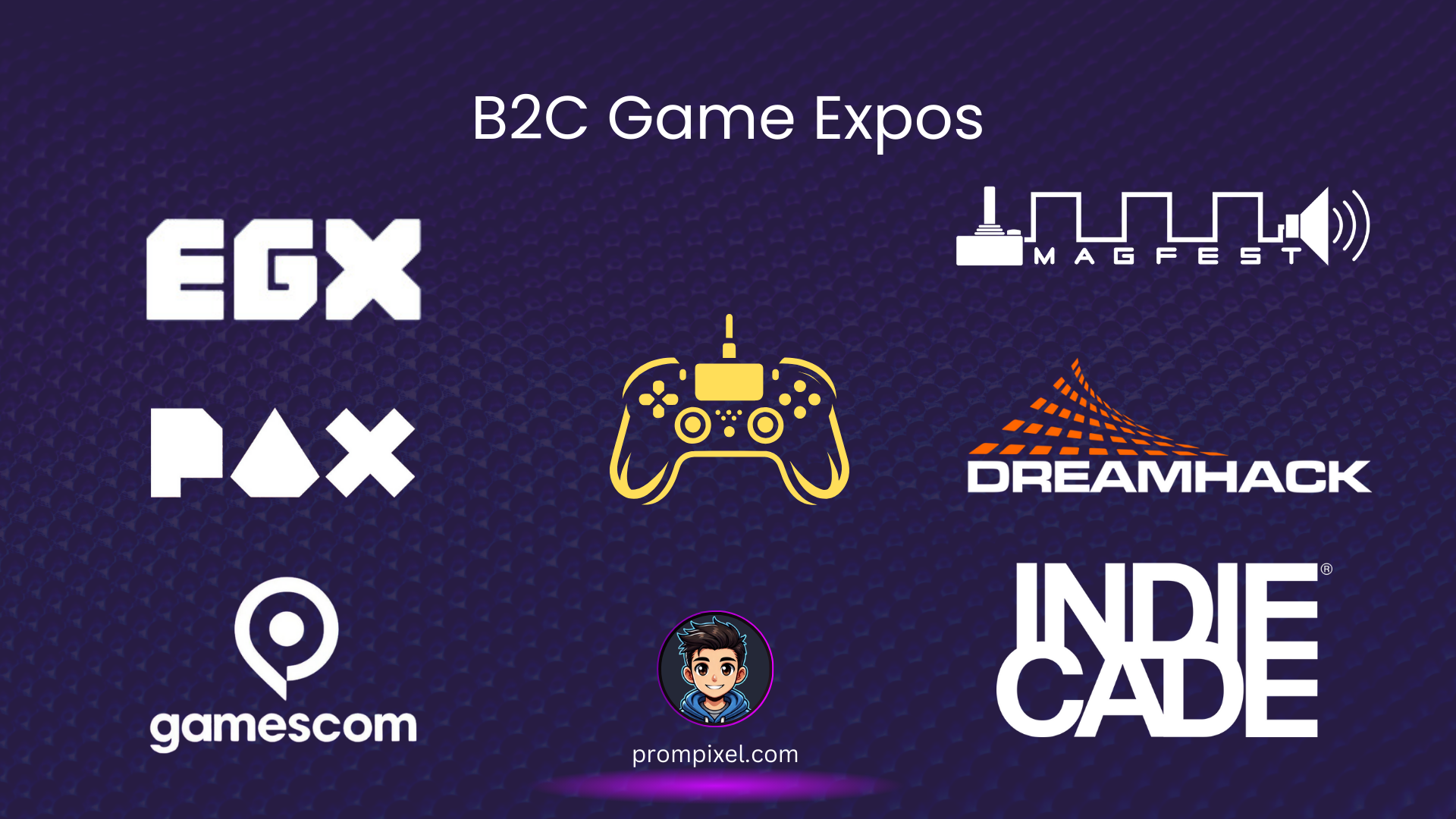
Overcoming Challenges at Expos
You’re probably wondering, “How can I attend so many expos if I live in another city or, worse, another country?” It’s a fair question. The reality is, attending game expos can be expensive. Travel, accommodation, booth setup, and promotional materials all add up quickly.
Cost isn’t the only challenge. At expos, people often group together with acquaintances, making it hard for newcomers to approach them. If you’re just starting out and don’t know anyone, it can feel like everyone is busy with friends or important contacts. If you spot someone you want to connect with, wait for a good moment, approach them, and start a conversation. If they’re in a rush, suggest visiting their booth, exchanging business cards, or scheduling a follow-up meeting. These groups are usually based on shared interests, so breaking in isn’t as hard as it might seem.
Another challenge is fatigue. Expos are long and exhausting for everyone. By the end of the day, attendees might not have the energy to give you their full attention, or you might feel too drained to present yourself at your best. For example, if you’re asked to give an interview while tired, it may not go as smoothly as you’d like. High noise levels, common at expos, can add to this difficulty. In such cases, it’s perfectly fine to leave your contact information with the press and suggest an online or in-person interview later in a quieter setting. This way, you can ensure a more effective and polished conversation.
My personal example: When I approached one of the exhibitors during the Toronto Game Expo 2024, I realized that it was too noisy, and I was very tired, to be honest. So, I suggested having online interviews later, and they agreed! You can watch the video here:
Networking at Expos
Networking at expos can be challenging, especially for newcomers and introverts like me (I am joking), as people often stick to familiar groups. Long lines at talks, food spots, or restrooms provide great opportunities to strike up casual conversations. Start with simple comments about the line or ask what others are excited to see, which often leads to shared interests and connections.
Talks, sessions, and nearby cafes are also ideal for meeting people. Engage with those sitting near you or ask to join someone at their table for a casual chat. Approaching speakers after their talks to thank them or ask questions is another effective way to network.
At parties, do not hesitate to join groups or move to a different event if the vibe is not right. Be mindful of private conversations (!), especially when you overhear terms like “contracts” or “confidential”. Politely excuse yourself if needed, as respecting boundaries shows professionalism.
Networking is about creating natural interactions, whether in lines, sessions, or casual settings. Respect social cues and stay open to opportunities to build meaningful connections.
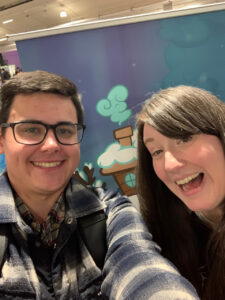
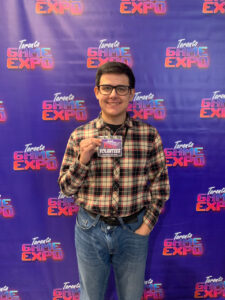

Marketing Before the Expo
When it comes to pre-show marketing, preparation and consistency are key. Follow these steps to ensure your efforts are effective:
Start Early and Build Anticipation: Begin promoting your presence at least five months in advance and start building your community. Use this time to generate excitement by sharing sneak peeks, behind-the-scenes content, and teaser videos. Consistently post updates on your social media channels, ensuring to include event-specific hashtags for maximum visibility. For more details on starting marketing your game check out my previous guide on that!
Leverage Social Media and Engagement: Create engaging content that highlights what attendees can expect from your booth. Use trailers, artwork, and promotional offers like giveaways or exclusive codes to draw attention. Always include clear calls to action, such as visiting your booth or scheduling a meeting.
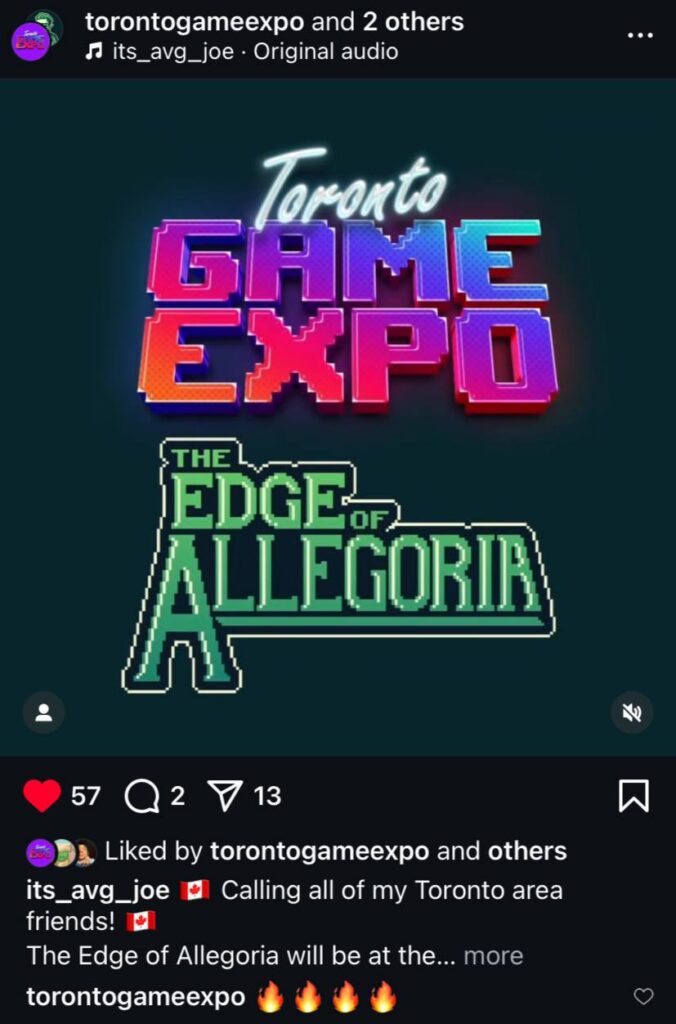
Schedule Meetings in Advance: Reach out to key attendees, including existing clients, prospects, journalists, and influencers. Set up one-on-one meetings or chats during the event to strengthen relationships and pitch your product. Use platforms like LinkedIn, Twitter, or email, and provide your booth location along with a concise value proposition.
Collaborate With Event Organizers: Work with the event team to feature your game in their newsletters, announcements, and promotional materials. Stay proactive by following up to ensure your game gets visibility through official channels. For example, at Toronto Game Expo you can create some videos during an expo and tag expo host as a collaborator on Instagram. It will help you to be shown on their profile and gain more views! You create content both for yourself and for organizer, it’s a win-win collaboration!
Preparing Your Team and Booth for the Expo
Proper preparation is key to making the most of your expo experience, especially if you’re working with interpreters, temporary booth staff, or volunteers. Everyone involved should be equipped with the knowledge and tools needed to represent your project effectively. Here’s how you can ensure a smooth and successful show:
Train and Equip Your Team
Provide Clear Documentation: Share detailed information with your team ahead of the event. Include a product overview, your objectives for the expo, key talking points, and logistical details such as the dress code. Temporary staff should have access to this material well in advance so they can familiarize themselves with your project.
Practice the Pitch: Everyone representing your booth should memorize an elevator pitch that succinctly explains the key selling points of your game. This should include what sets it apart from competitors and a clear call to action, such as inviting attendees to play your demo or leave their contact information.
![]()
Check out my infographic on pitching your indie game to publishers, investors and potential collaborators!
Collect Feedback On-Site: Have a system in place for recording observations from player interactions. Whether it’s parts of the game that resonate most or areas where players struggle, this feedback can be invaluable for improving your product. A shared document is a practical way to track this information in real time.
Organize Your Booth Setup
Prepare a Polished Build: Make sure your demo is stable and as bug-free as possible. Consider borrowing or renting additional devices, such as laptops or tablets, to allow multiple people to try the game simultaneously.
Make It Visually Engaging: Plan your booth design to attract attention. Use banners, posters, or standees to create a memorable visual presence. If possible, include interactive elements like gameplay videos on a monitor or tablet to engage passersby who may not immediately stop.
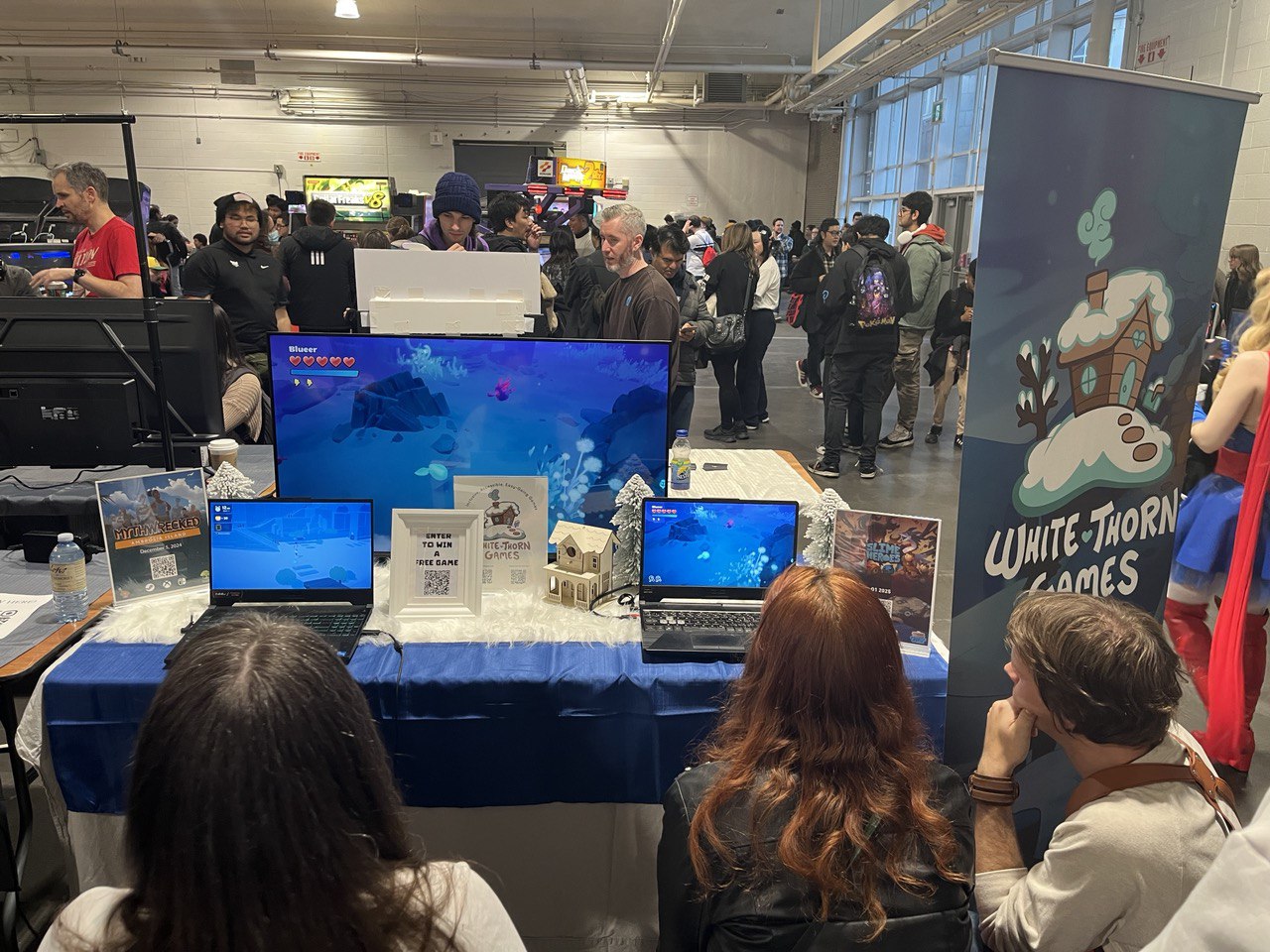
Thematic Booth Design: Take your booth design to the next level by decorating it in the theme of your game or brand. For example, include figurines of your game characters or other interactive elements that reflect your game’s world. If your budget allows, create themed merchandise, such as T-shirts, hoodies, or stickers, that you can offer as rewards for attendees who complete a specific (but not too challenging) goal in your game. This not only draws attention but also creates a memorable experience for visitors. If you are on a tight budget, a good-looking banner and people willing to play your game will be enough!
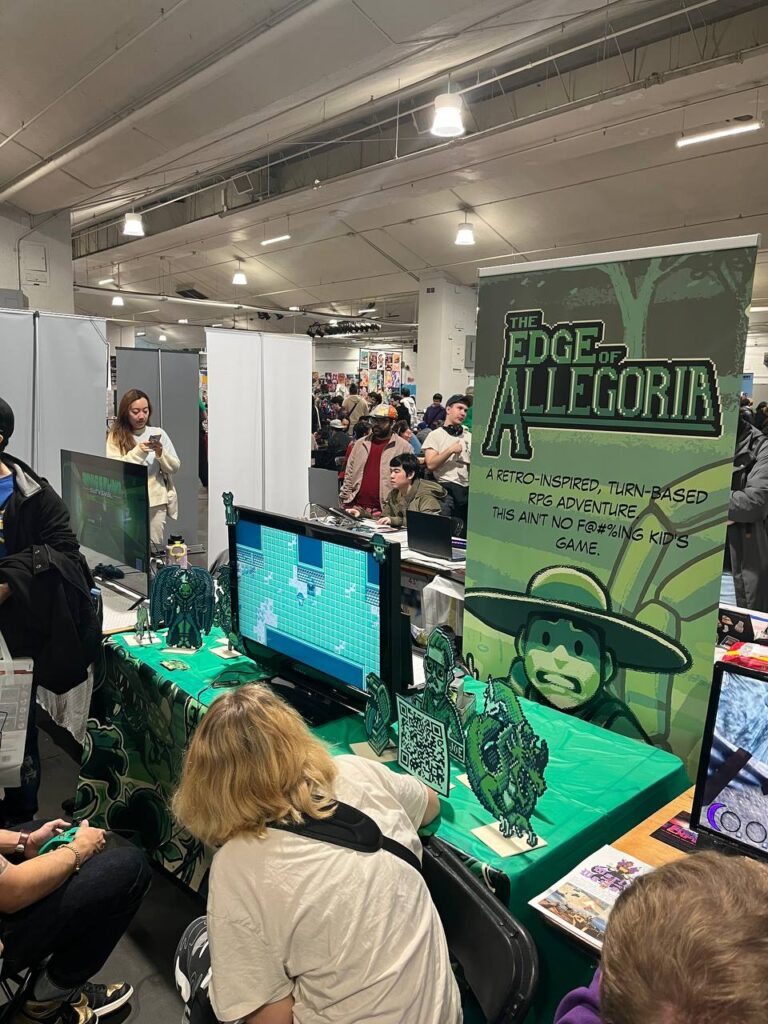
Add a Personal Touch: Small details like a bowl of unique regional snacks or branded merchandise can make your booth stand out. These items not only draw people in but also create positive associations with your project.
Leaflets and Marketing Materials
Having printed materials at expos is really helpful. They let people learn about your game without you having to explain everything over and over, which can get tiring. Not everyone wants to jump into a conversation or play your game right away, so giving them a leaflet lets them check it out later at their own pace.
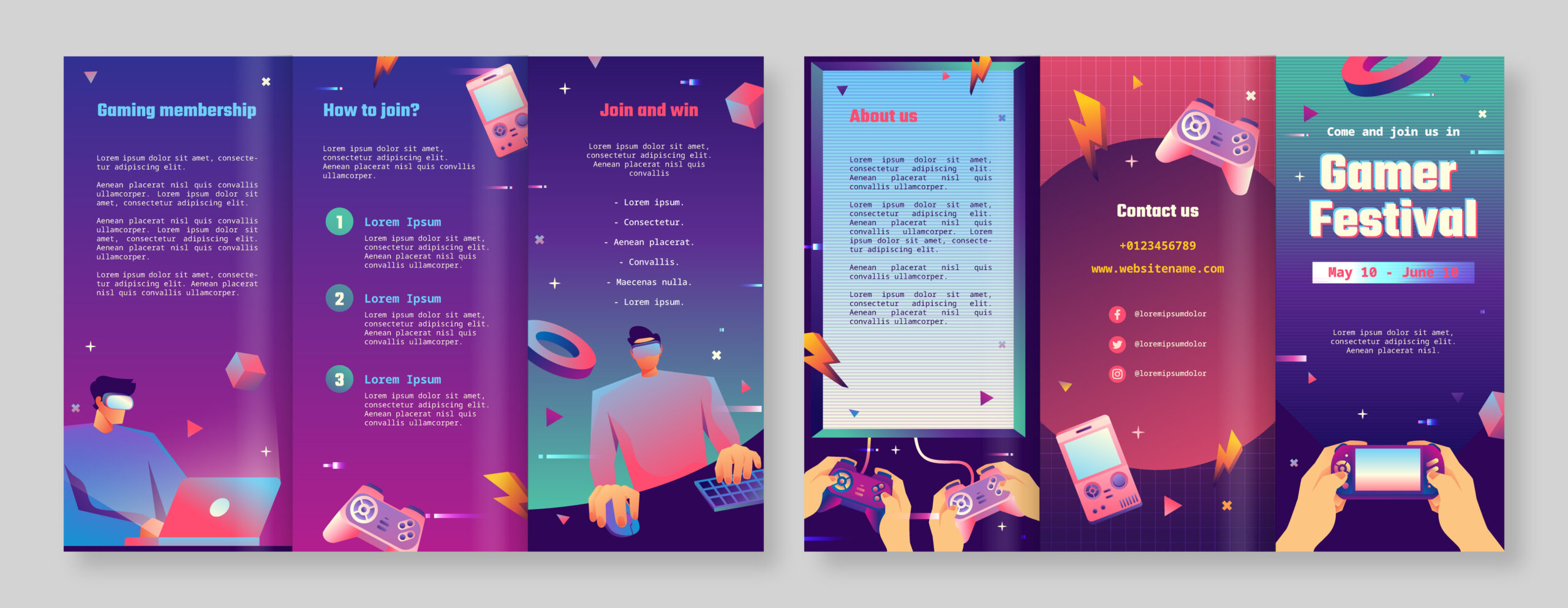
A leaflet can include more details than a business card. Make sure it shows where people can buy or download your game, includes the price, release date, and platform, and uses eye-catching visuals to grab attention. Add a short description about what makes your game special, along with a few screenshots or review quotes if you have them. You can also use QR codes, hashtags, or discount codes to make it interactive and easy for people to remember.
While business cards are still great for quick introductions, leaflets give visitors more information to help them remember your game. Be sure to bring plenty of both, so you don’t run out. With good leaflets and business cards, your booth will be more inviting and leave a stronger impression on everyone who stops by.
Following Up After the Expo
Most business opportunities from an expo are secured through follow-up work in the days immediately after the event. Keeping track of your leads is essential, and it helps to organize them by priority, such as those who showed strong interest, those who were moderately interested, and those who were simply curious.
Reach out to your most interested leads within the first 48 hours after the expo to maximize your chances of success. For instance, these could include publishers who requested more information, journalists who expressed an interest in covering your game, or players who enjoyed the demo and asked for updates. Personalize your messages to each lead. Remind them of your conversation, include specific details from your interaction, and offer something extra to make your email stand out, such as a discount code, early access to the game, or a thank-you gift.
Act quickly and tailor your follow-up communications to each type of lead. This shows professionalism, keeps the connection alive, and increases the likelihood of converting those leads into valuable partnerships or sales. By following up with care and attention, you can make the most of the opportunities created during the expo.
